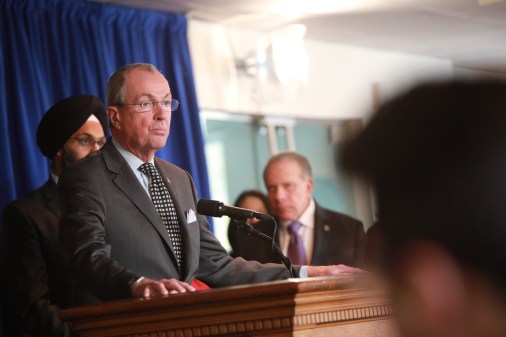Obama-era computer science initiative surging ahead despite hurdles

Obama-era policy wonks and advocates are trying to keep a major initiative from the previous administration alive by promoting computer science education throughout the country.
While President Donald Trump has virtually ignored the Office of Science and Technology Policy, leaving the White House agency without a director and several key leadership positions, a former OSTP senior policy adviser under President Barack Obama has helped take the CSforAll initiative to a new level.
Ruthe Farmer helms the CSforAll Consortium, which aims to expand and advance computer science education in schools nationwide. The consortium grew out of CSforAll, which was launched by the White House in January 2016. Obama called for Congress to allocate $4 billion for states and $100 million directly filtered to school districts to expand K-12 computer science education, train teachers, expand access to rigorous instructional materials, and build new partnerships.
While Congress did not approve those funds in the last budget, other agencies like the National Science Foundation and organizations like Google, Amazon, Salesforce and Code.org pledged and delivered their own resources.
The consortium, which receives funding from the National Science Foundation, will bring together about 300 computer science educators, researchers, activists, nonprofits and industry partners for the second annual Summit on Computer Science for All, to be held in October at Washington University in St. Louis.
Farmer, the consortium’s chief evangelist, said there is still a lot of work to be done.
“We need [computer science] standards adopted by all the states, we need certification pathways for teachers … and all of this is going to take money,” Farmer said during an interview. “This work of getting computer science to all kids, I think, is a bipartisan issue, and everyone agrees that we need to upgrade our educational system for a changing economy. That’s a no-brainer.”
A main focus of the conference is to highlight successful computer science education models that could possibly be replicated in rural areas to provide access to underrepresented students in those districts.
The conference comes on the heels of a revised set of K-12 standards that came out this month from the Computer Science Teachers Association.
In the revised CSTA K-12 Computer Science Standards, for example, children in grades K-2 should be able to describe basic hardware and software problems using proper terminology and explain what passwords are and why it’s important to choose strong passwords to protect devices and sensitive information.
Kids in grades 6-8 should be able to identify and fix problems with devices, and apply multiple methods of encryption for the secure transmission of information, the standards say.
As students get older, they should be able to create interactive data visualizations and computational models using software tools to better understand real-world problems, and, finally, develop programs for multiple computing platforms.
“Adopting standards is a critical step toward achieving CSforAll,” said Farmer. “The newly revised CSTA K-12 Computer Science Standards provides a useful model for states and districts to leverage in taking this critical step.”
Only seven states so far have adopted standards for computer science education, and 22 states have teacher licensing standards, according to Education Week.
Farmer compared the revised standards to those of the Common Core, which was met with varying degrees of acceptance in states.
“It’s very rare that every state is going to wholeheartedly take the standards and adopt them,” she said. “They usually do their own processes. But the move to adopt standards is happening, and it is a really important part of the systemic introduction and creation of sustainable computer science.”
New York, Arkansas and Virginia and other states are taking big steps to offer programming classes in schools.
Launched last year was a new Advanced Placement Computer Science Principles exam which students could take to count toward college credit. More than 2,700 schools offered the course and more than 45,000 students took the exam in May, according to College Board.
Still, Farmer said, “We are very early in this journey.”
“I think it’s really important that we get this done quickly, but at the same time, we have to be careful that we’re thinking about inclusion and rigor while we design it,” she said. “Because systems are permanent, and once you establish them, it’s hard to change them.”
Reach the reporter at corinne.lestch@edscoop.com and follow her on Twitter @clestch and @edscoop_news.




